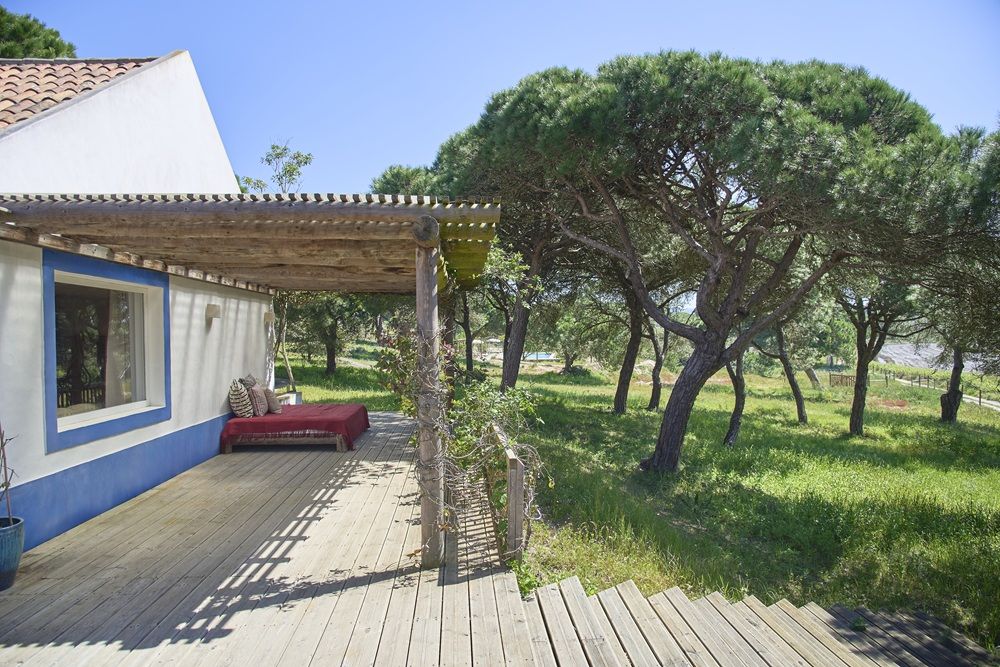Christian Louboutin Enters Alentejo Luxury Rental Market with Two Private Villas
The high-end property market in Portugal’s Alentejo region has received a significant new entry with the announcement that French designer Christian Louboutin is opening two private luxury villas for short-term rental in Melides. This development comes two years after the launch of his acclaimed Vermelho Hotel in the same town and signals a deeper commitment to the area from the iconic fashion figure. The properties, named La Salvada and La Maison des Bateaux, were originally developed as personal homes but have been converted for commercial use, targeting an affluent international clientele seeking exclusivity and high design. The investment thesis appears to be centered on leveraging a world-renowned brand to create a unique, high-yield hospitality asset in a region experiencing growing demand from luxury tourism. The villas are being marketed through the prestigious Relais & Châteaux network, ensuring they meet a global standard of excellence and have access to a qualified customer base. Rates are reported to start at €1,700 per night, with potential to reach €2,200, placing the properties in the upper echelon of Portugal's rental market and suggesting a strong potential for return on investment.
Vera Gonçalves, the general manager of Vermelho, provided insight into the project's origins, telling Executive Digest, "These were personal projects, not intended for commercial use. Their opening reinforces the Vermelho brand as a symbol of creativity, authenticity, and exclusividade." This narrative of personal curation is a key part of the marketing strategy, designed to differentiate the properties from standard commercial developments. The target market is clearly high-net-worth individuals who value design, privacy, and unique experiences. La Salvada, a 250-square-meter villa, features two suites and a private sea-facing pool, while the 150-square-meter La Maison des Bateaux is a restored traditional home that can host up to six guests. Both are decorated with items from Louboutin's personal art and design collection, adding a layer of unique value. The investment is supported by a full-service hospitality model, with guests having access to optional services such as a private chef, room service, and a personal shopper, all managed through the nearby Vermelho Hotel. This operational structure ensures a seamless luxury experience and provides a scalable model for managing high-end properties.
Need Expert Guidance?
Get personalized insights from verified real estate professionals, lawyers, architects, and more.
The market conditions in the Alentejo region appear to support this type of investment opportunity. Melides, once a quiet coastal town, is increasingly on the radar of international investors and tourists seeking an alternative to the more crowded Algarve. The region's appeal is based on its natural beauty, expansive beaches, and a sense of rustic authenticity that is becoming rare in other European coastal destinations. Louboutin's presence acts as a market validator, likely to attract further investment and drive up property valuations in the surrounding area. The project's emphasis on incorporating local Portuguese craftsmanship and textiles also aligns with current consumer trends that favor authentic, culturally rooted luxury experiences over generic five-star offerings. This focus on local sourcing and design can also be seen as a risk mitigation strategy, creating a product that is deeply connected to its location and therefore more resilient to shifting market tastes.
However, the project is not without risk factors and broader market implications. The introduction of such high-priced inventory raises questions about the potential for market saturation in the luxury segment and the impact on the local community. The exclusivity of the villas could contribute to a wider debate on gentrification and the role of elite tourism in regions like the Alentejo, which could lead to regulatory scrutiny in the future. For potential investors in the region, this development presents both an opportunity and a case for careful due diligence. On one hand, it signals strong confidence in the future of the Alentejo luxury market. On the other, it highlights the importance of understanding the nuances of local community relations and sustainable development. The exit strategy for such an investment would likely be a sale to another high-net-worth individual or a boutique luxury hospitality fund. The success of Vermelho Hotel and these new villas will be a closely watched indicator of the Alentejo's capacity to absorb further high-end development. The regulatory environment for short-term rentals in Portugal remains a key consideration, although high-end, professionally managed properties like these are often viewed more favorably by local authorities than mass-market Airbnb-style listings. Explore investment strategies and opportunities at realestate-lisbon.com.





